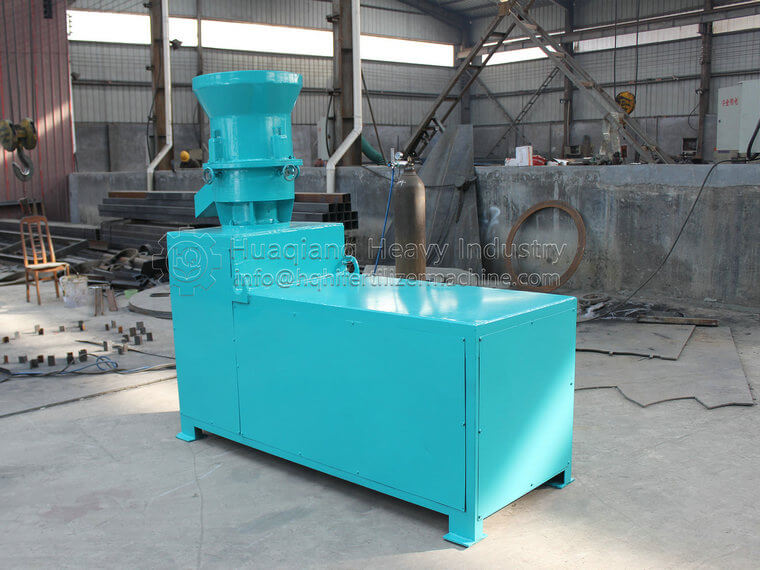There are a large number of pathogenic bacteria and parasites in the farm manure. If it is not properly treated, it will become the source of infectious diseases of livestock and poultry, parasitic diseases and zoonotic diseases. At the same time, the farm manure also contains a large number of nitrogen, phosphorus, potassium and some heavy metal elements. If it is not properly treated, it will easily cause soil, water and air pollution, and pose a threat to human health. Livestock and poultry excrement includes chicken excrement, pig excrement, cow excrement, sheep excrement, horse excrement, duck excrement, rabbit excrement, pigeon excrement and other livestock and poultry excrement, as well as straw decomposed organic fertilizer. These livestock and poultry excrement and straw are pure organic fertilizer when they are not processed or decomposed and fermented in any way. If farm manure is not decomposed and fermented, and is directly used on crops, it will cause soil hypoxia, disease and pest breeding, and slow fertilizer efficiency Problems such as fermentation, seedling burning and harmful gas damage affect crop growth and harvest. The main substance in bio-organic fertilizer is organic matter. The application of bio-organic fertilizer increases the content of organic matter in the soil. Organic matter can improve the biological characteristics of the soil, ripen the soil, and improve the soil fertility. Therefore, bio-organic fertilizer is becoming a new trend in agricultural development. The prospect of processing organic fertilizer with poultry and livestock manure is very broad, and the scale can be further expanded in the later stage, so that the manure produced by more farms can be recycled. After fermentation, bio-organic fertilizer is crushed by semi-wet material crusher, granulated by organic fertilizer granulator, dried and dehydrated by dryer, and then screened by screening machine. The finished organic fertilizer is ready and can be packaged, stored and sold.

1. Beneficial microorganisms in the process of bio-organic fertilizer production line play an important role
After a variety of functional microorganisms contained in bio-organic fertilizer enter the soil, they produce a large number of secondary metabolites during the growth and reproduction process, which can promote the formation of soil aggregate structure. The formation of granular structure makes the soil become loose and soft, the water and fertilizer retention performance is enhanced, the water, air and heat are more coordinated, and the soil hardening is reduced, which is conducive to water conservation, fertilizer conservation, ventilation and root development, and provides a comfortable growth environment for crops. The improvement of soil physical and chemical properties strengthens the activities of beneficial microorganisms in the soil, thus maximizing the decomposition and transformation of organic matter, producing a variety of nutrients and irritants, which in turn stimulates the growth and development of microorganisms, promotes crop growth, and ultimately achieves the goal of increasing production and income. In addition, functional microorganisms form dominant populations around the roots of crops, inhibit or antagonize the growth and reproduction of harmful pathogens, reduce the degree of crop disease, and thus increase the yield.
Bioorganic fertilizer contains a variety of functional microorganisms and rich organic matter, which can improve soil structure and play a role in nutrition, conditioning and health care for crop growth. The reduction of the amount of chemical fertilizer applied has correspondingly reduced the nitrate content in agricultural products. The experiment shows that bio-organic fertilizer can reduce the nitrate content of vegetables by 48.3-87.7% on average, increase the content of nitrogen, phosphorus and potassium by 5-20%, increase vitamin C, decrease the content of total acid, increase the reducing sugar, and increase the sugar-acid ratio, especially for tomatoes, lettuce, cucumber, etc., which can significantly improve the taste of raw food. Therefore, with the use of bio-organic fertilizer, the leaves of agricultural products are fresh and tender, taste sweet, and taste better.
3. What to use bio-organic fertilizer to reduce crop diseases
Bio-organic fertilizer can alleviate crop diseases in three ways: first, the growth and reproduction of functional microorganisms in the fertilizer can form dominant populations in the crop rhizosphere soil micro-ecosystem, inhibit the growth and reproduction of other harmful microorganisms, and even antagonize some harmful pathogenic bacteria, reducing the harm opportunities of harmful microorganisms. Second, functional microorganisms secrete various metabolites into the crop rhizosphere soil micro-ecosystem during the growth and reproduction process. These metabolites can stimulate crop growth and improve the ability of crops to resist adverse environment. Third, the bio-organic fertilizer has comprehensive nutrient elements, the crops grow healthily, have good plant type and reasonable population, enhance the disease resistance of crops and reduce the occurrence of diseases. For example, in the cabbage experiment, the incidence rate of soft rot disease was 2% when bio organic fertilizer was applied, while that of vegetable fertilizer and dried chicken manure was 17% and 20% respectively. So we suggest that you eat melons, fruits and vegetables grown from organic fertilizer for your own and family's health. That is why the country advocates the use of organic fertilizer.